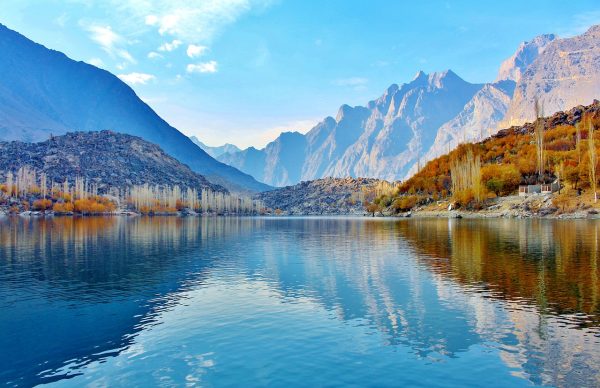Pakistan offers enormous unrealized tourism potential. In the next ten years, the potential for the nation’s tourism industry might increase by up to USD 39.8 billion, according to the World Tourism and Travel Council.
Positively, Pakistan’s tourist industry has already benefited from the current government’s strong dedication to promoting it, which has led to Pakistan being dubbed “Asia’s best-kept secret”. Government projections indicate that by 2025, the growth of Pakistan’s tourism sector could contribute up to Rs. 1 trillion to the country’s economy. In this sense, sustainable examples for the growth of travel could be found in Sri Lanka, the Maldives, Thailand, and other nations.
The state of law and order in the nation has greatly improved during the last many years. There has been a 300% increase in the number of domestic and foreign tourists visiting the country, particularly the breathtaking North, because the country’s terrorist activities have decreased by almost 90%. The country’s wild natural vistas are particularly alluring to foreign visitors, who have shown a strong desire to explore these far-off locations in recent years.
The stunning valleys of Hunza, Nagar, Nelaam, and Kalash; the verdant forests of Swat, Kalam, and Kumrat; the wide, unspoiled coastline regions; the captivating deserts; the ruins of the earliest civilizations; and the rich cultural heritages all combine to make Pakistan one of the world’s most popular vacation destinations.
How may Pakistan’s travel sector aid in the country’s economic growth?
According to the UN World Tourism Organization, tourism is classified as a “Industry” and supports a number of national economic sectors, including
- Accommodation and hoteling
- Eatery and Drinking Supplies
- Transportation by Rail
- Transportation by Road
- Flying
- Transportation via Water
- Travel and Tour Companies
- Recreational and Sports Activities
- Events & Activities related to Culture
- Tourism Activities Particular to Each Country
- Transport Equipment Leasing
The following are a few of the favorable economic effects of travel that, in my opinion, might be enhanced by the expansion and improvement of the sector:
Increases in the travel sector will inevitably result in higher GDP growth for the nation. At the moment, tourism contributes less than 8% of the country’s GDP.
International trade and business are made possible by consistent travel.
The travel and hospitality industries are among the most heavily invested in sectors in terms of foreign direct investment.
Infrastructure projects comprising roads, railroads, water and electricity supplies, and other related services are developed as a result of the growth of the tourism industry.
A significant amount of international tourism could help sustain the declining foreign reserves.
The tourism industry could lead to a significant increase in job prospects within the nation.
Due to its bigger supply chain, which may aid in the growth and benefit of a greater population section, the tourism industry encourages more inclusive growth.
Rural villages may benefit from tourism in order to lift their rural population out of poverty.
The blue economy is fueled by tourism, which also helps to preserve marine life and improve coastal areas.
The country’s Fintech and digital economy are developing more quickly because to tourism
Put succinctly, Pakistan’s tourism sector has enormous promise for the nation’s economic development. Of all the countries, Pakistan is endowed with one of the most breathtaking landscapes. This country is a true hidden gem, just waiting to be discovered, with its incredibly long shoreline stretches, sky-touching snowy mountains, blistering suns, and rich cultural legacy. Pakistan’s tourism sector could flourish if the government made a concerted effort to position the country as “Asia’s best-kept secret” and liberalized visa policies for foreign visitors. This could make Pakistan one of the world’s most popular travel destinations.


Comments are closed, but trackbacks and pingbacks are open.